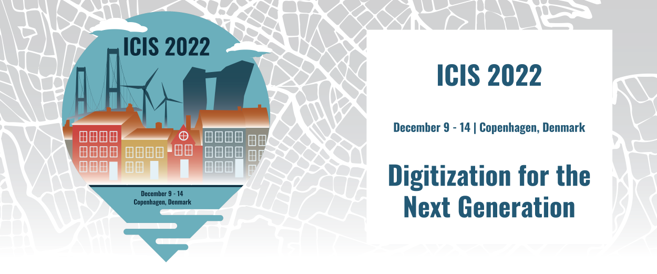The track on advances in methods, theories, and philosophy continues the ICIS tradition by inviting IS scholars to engage with fundamental questions of the nature and purpose of IS research and theorizing, to critically reflect on philosophical underpinnings and methodological developments, and to envisage advances that would inspire future scholarly endeavors. Rapid, ubiquitous digitalization is not only an ever-present subject of our inquiries, it also poses growing concerns regarding social, organizational and individual issues. With its focus on the social, the technological and the human, the IS discipline has unique opportunities and responsibilities in investigating, understanding, and theorizing digital phenomena. We have unique opportunities due to our systemic, holistic, multi-faceted, and multi-paradigmatic inquiries into the technological, social, and human aspects of digitalization. Furthermore, we have unique responsibilities for identifying, drawing attention to, and explaining the dangers and detrimental social effects of, problematic digitalization practices (such as digital surveillance; digital discrimination and depravation of the most vulnerable) often imposed under the banner of “technological progress.” With our inquiries, our theorizing, and the knowledge that we create, we all participate in the making of our shared digital world and the remaking of our humanity.
Track Co-Chairs Dubravka Cecez-Kecmanovic, Ph.D., University of New South Wales Aron Lindberg, Ph.D., Stevens Institute of Technology Tuure Tuunanen, Ph.D., University of JyväskyläSubscribe to RSS Feed (Opens in New Window)
| 2022 | ||
| Monday, December 12th | ||
| 12:00 AM |
A New Way to Reflect the IS Identity? Uncovering the Intellectual Core of Podcasts Eduard Anton, University of Osnabrück 12:00 AM |
|
|---|---|---|
| 12:00 AM |
Dialectical Inquiry in Information Systems Research: A Synthesis of Principles Raffaele Fabio Ciriello, University of Sydney 12:00 AM |
|
| 12:00 AM |
Digital Mesh: On the Rise of Mesh Computing Gongtai Wang, The University of Queensland 12:00 AM |
|
| 12:00 AM |
Early-Stage Construct Development Practices in IS Research: A 2000-2020 Review Jean-Charles Pillet, TBS Business School 12:00 AM |
|
| 12:00 AM |
Anne-Marie Tuikka, University of Turku 12:00 AM |
|
| 12:00 AM |
Material-Affective Assemblage Thinking in Researching Scalar Phenomena Shama Patel, Copenhagen Business School 12:00 AM |
|
| 12:00 AM |
Felix Dörpmund, Technical University of Munich 12:00 AM |
|
| 12:00 AM |
Lena Hylving, School of Information Technology 12:00 AM |
|
| 12:00 AM |
Thomas Grisold, University of Liechtenstein 12:00 AM |
|
| 12:00 AM |
Theorizing the Concept of Agency in Human-Algorithmic Ensembles with a Socio-Technical Lens Christian Meske, Ruhr-Universitaet Bochum 12:00 AM |
|
| 12:00 AM |
Unveiling the Cloak: Kernel Theory Use in Design Science Research Frederik Möller, TU Dortmund University 12:00 AM |
|


